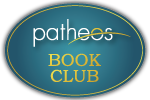Today my mind is not on Veteran’s Day; rather, my heart is heavy for the many hard-working, team-playing, staff people here at Bethel University (including the Seminary) who will be informed that their jobs are quickly coming to an end. This day represents yet another round of budget cuts and layoffs here in the land of Bethel. A month or so ago some faculty were informed that this will be their last year teaching at Bethel. Back then, a Bethel colleague at the College of Arts and Sciences wrote about this coming staff “D-Day” in a post in which he pleads for more support from churches for Christian liberal arts and seminary education. We’ve known this day was coming; it’s now arrived.
As one can imagine, the cuts of faculty and staff have sliced deeply into the morale of the place. If I may turn trite for a moment by using a sports metaphor, they say that winning covers over a multitude of faults, conflicts, and problems. Losing does the opposite. It raises tensions, exposes weaknesses, and creates further conflicts. Losing is no fun.
In institutions of higher learning, many of which are facing challenges, hard-choices, and layoffs, “losing” is no fun either. It creates a difficult environment for pursuing the very thing we are all supposed to be doing: learning. Professors are professionals; we continue to lecture, grade, research, write and meet with students. And students are paying to learn–and they are remarkably resilient. But in all honesty, it’s not easy.
My colleague Glen Scorgie recently reminded me that back in 1939, at the outset of World War II, C.S. Lewis preached a sermon at Oxford called “Learning in Wartime.” Forgive me for switching metaphors yet again, but his wisdom is applicable to Christians everywhere in any sort of “wartime” situation. Lewis reminds us that, if one believes in eternal life and in the real threat of eternal judgment, one must already ask the question (wartime or not) Is learning important? Should we spend time reading works of literature, or painting works of art, or philosophizing, or theologizing, or learning cultural theory, etc., when the question of eternity hangs over our little finite, temporal heads?
Lewis gives several arguments for why learning in wartime is crucial to undertake. The two most profound themes, I think are that (1) We are human beings. Humans are humanized by our intellectual and cultural pursuits–and we quite naturally pursue the big questions of life’s significance and meaning (and of beauty and truth and so on). He points out the observation that, it’s not as if the closer one gets to the “frontlines” of war, the less one thinks about these things. As only Lewis can put it: Humans “propound  mathematical theorems in beleaguered cities, conduct metaphysical arguments in condemned cells, make jokes on scaffold, discuss, the last new poem while advancing to the walls of Quebec, and comb their hair at Thermopylae.” In sum, ” There is no essential quarrel between the spiritual life and the human activities as such.” In fact, humans are going to think, reflect, and read–we might as well think about and read the best stuff we can; (2) Learning, for Christians, is done with and under the conviction that the universe if God’s, and therefore that the pursuit of learning (and any other cultural endeavor, including menial and hard labor) can be understood as a participation in God’s omnipresence and therefore can be done in and for the glory of God–even as (or especially as) the bombs are falling. Living in the knowledge of God’s presence and of the relativity of time to eternity can help drive out paralyzing fear–the kind of fear that would prevent us from embracing our humanity and our desire to learn.
mathematical theorems in beleaguered cities, conduct metaphysical arguments in condemned cells, make jokes on scaffold, discuss, the last new poem while advancing to the walls of Quebec, and comb their hair at Thermopylae.” In sum, ” There is no essential quarrel between the spiritual life and the human activities as such.” In fact, humans are going to think, reflect, and read–we might as well think about and read the best stuff we can; (2) Learning, for Christians, is done with and under the conviction that the universe if God’s, and therefore that the pursuit of learning (and any other cultural endeavor, including menial and hard labor) can be understood as a participation in God’s omnipresence and therefore can be done in and for the glory of God–even as (or especially as) the bombs are falling. Living in the knowledge of God’s presence and of the relativity of time to eternity can help drive out paralyzing fear–the kind of fear that would prevent us from embracing our humanity and our desire to learn.
In sum, if we understand our humanity, embrace our finitude (and the inevitability of death), and rest in the omnipresence of God, no situation is too troubling or challenging to persist through in our quest for learning:
For that reason I think it important to try to see the present calamity in a true perspective, The war creates no absolutely new situation: it simply aggravates the permanent human situation so that we can no longer ignore it. Human life has always been lived on the edge of a precipice. Human culture has always had to exist under the shadow of something infinitely more important than itself. If men had postponed the search for knowledge and beauty until they were secure the search would never have begun. We are mistaken when we compare war with “normal life”. Life has never been normal.
On this day, I have no intention to equate institutional “wartime” with real war. And yet, in the former, people’s welfare, perhaps even vocational hopes and dreams, relationships, and so on still lie in the balance and the effects of conflict (even though non-physical or life-threatening) can be very real. It can be tempting to lose sight of the purpose for which we are here in a university and in a seminary. I think Lewis’ words give us some guidance.











